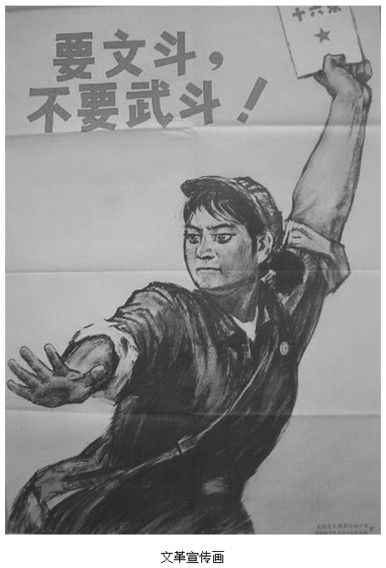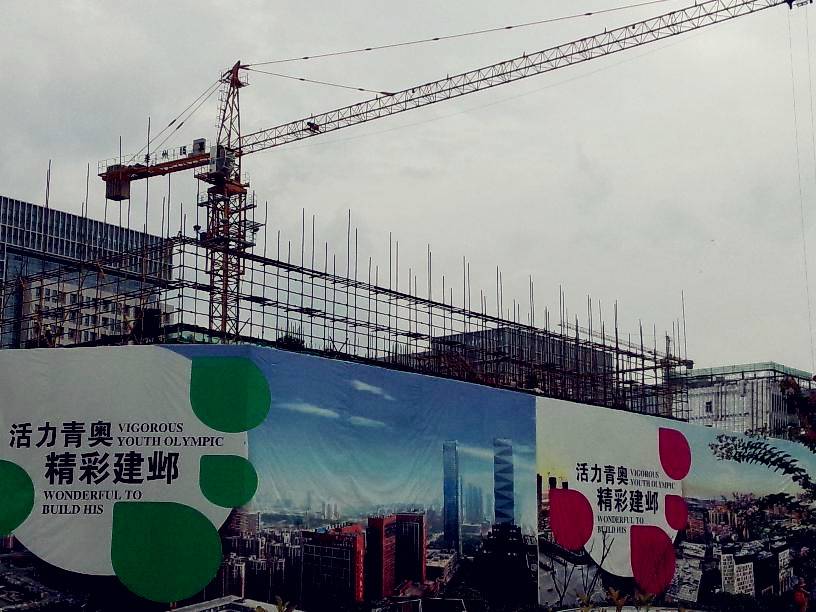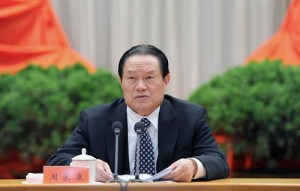Recently I communicated with some other freelancers on ProZ about where they work. And one man inspired me a lot. He said he works everywhere, especially in noisy occasions, including railway stations, airports and even on trains. Read more ›
What You Know About Chinese Calligraphy Could All be Wrong
Recent I wrote a Chinese post on the secrets of Chinese calligraphy (“Shufa” in Chinese Pinyin), as for “secrets”, it may sound incredible, but it’s true according to historical records.
For example, it was recorded that “calligraphy saint” Wang Xizhi as a child once stole a recipe of Shufa under his father’s pillow, and when he became old, he warned his son that the recipe couldn’t be easily shared with anyone outside the family. Read more ›
Xi Criticizes Venality in Literature and Art, Game Developers not Worried
At a meeting with hundreds of writers, directors and other literature and art practitioners held last week, Xi warned that creation of literature and art works should not be enslaved by the market.
Xi’ speech raised great attention of Zhao Benshan, one of the greatest comedy stars in China, called as “King of Short Sketches”, who was, however, not invited to the meeting. Zhao Benshan called his disciples together, to carefully study Xi’s speech, soon enough after Xi’s talk.
Zhao’s action is universally deemed as an expression of loyalty to China’s new administration led by Xi. His motive of doing this is possibly because of his past complicated relationship with Bo Xilai and Wang Lijun, high-ranking officials purged in 2012.
Also, Zhao and his disciples’ performances, especially Couple Dance Opera, a local performance item of Northeast China, are usually deemed as being vulgar and sometimes erotic, Zhao’s statement is some kind of guarantee in this sense.
However, another important species in the so-called “literature and art field” (usually equivalent to entertainment) – online game seems to be totally unconcerned. Not a person in the industry has talked publicly about Xi’s speech, and not a related article has appeared on any mainstream media sites.

But hidden troubles exist though people put their heads in the sand. Compared to other entertainment forms like films, books and TV shows in China, online games are relatively minor in most people’s lives and in public opinions, but it has long been a severely afflicted area of vulgarity, eroticism and venality, much more serious than literature or art.
The Chinese government recognized harms of games long time ago, and thus banned console games, but it has been turning a blind eye to it in the past years.
The mercenary online games in China have addicted millions of teenagers, who often thus neglect studies and some even committed suicide for lack of money or being afraid to face the reality.
Such phenomena are largely due to mean design of the games, which make full use of human weaknesses and take all possible measures to ensure addiction and payment. Zhengtu (征途) is typical of them, condemned by not only parents, but many game designers.
Moreover, another main cause of indulgence in games is spiritual emptiness, which is severe in the Chinese society; reasons for this may include the empty Chinese-style education and moral decline of the society, as well as poor quality of other forms of literature, art and entertainment, which are usually unattractive to young people.
Just take a look at the Chinese book market or the domestic films and you’d know what I mean. This situation is sadly more or less attributable to inflexible governmental regulations.
Peter Hessler: A Chinese in His Previous Life?

Peter Hessler
I’ve been planning to write something about Peter Hessler (何伟) for a long time, but always don’t know what to write. Actually I wrote a Chinese post on him this January, but just a casual note.
I read his Country Driving and River Town last year, which shocked me, for reasons hard to clearly describe. Chinese critics always say Peter Hessler is good at writing “small aspects” neglected by other writers, that’s true. However, his books mean much more for me.
Maybe the most impressive thing is Peter Hessler’s attitude towards ordinary Chinese.
First, he was always like an onlooker, staying out of all things happening on those Chinese people he met, although he was deeply engaged in their daily affairs. He helped a young peasant with curing his son, he won the heart of a technician in a factory, who asked him to be a business partner. Still, he looks detached as if he is leaving at any moment. Such attitude is sort of fascinating to me, maybe because as a Chinese, I cannot be detached and easy in face of all those things.
More importantly, he was so nice to all the Chinese people he met, maybe nicer than most Chinese writers.
China’s great writer Lu Xun said he was “always not afraid to speculate about Chinese with the greatest malice”. Nearly a century later, the Chinese society is now facing much more serious trust crisis, people wouldn’t help elders falling down in the street, in fear of blackmails. But Peter Hessler seems to be totally ignoring these. On the contrary, he always treated Chinese with good faith. Most Chinese people in his books are respectable and lovely, even when they did stupid and unfaithful things.
In China, Chinese peasants are often described as being numbed and their so-called “deep-rooted bad habits” are always a big topic for intellectuals, but it seems that Peter Hessler just take them as being very normal, also respectable and lovely.
It’s very possible that Peter Hessler’s good attitude derived from his identity as a foreigner, for Chinese are often nicer to foreigners than to compatriots. Even so, Peter could still choose to despise the Chinese people, especially those unmannered, but he could not be more modest in his writings.
As I’m recalling Peter’s books on China and looking at his photos, I even doubt he has been a Chinese in one of his previous lives, for his acting like an ancient Chinese gentleman and delicate emotions for China.
I do hope that more and more restless and arrogant young Chinese will read Peter Hessler’s books, they will see a new sight of Chinese society, just like me.
Apple Has Great Products But Terrible Translations

Apple’s iPhones, iPads and Macs have conquered the world, and its official website is stunning with delicate design and creative wording.
However, its Chinese website is far from satisfactory. Actually, Chinese translations on the official website of Apple have been jokes again and again.
Take the example of the latest translation of iPhone 6, the original text “Bigger than bigger” was literally translated into “比更大还更大”, which is awkward and ungrammatical. After receiving a lot of laughter and criticism on the Internet, the translation was later improved to be “岂止于大”, which means “there is much more than just bigger”.
Maybe literal translation is regarded as being authentic by someone in Apple, but unfortunately, like the differences between many languages in the world, generally the distinction between English and Chinese is distinct (isn’t this sentence very Apple?). Anyhow, Apple’s literal translations have made some people doubt whether Apple tries to “re-invent” the Chinese language.
A worse guess about this phenomenon is that Apple doesn’t have enough good translators, which is very possible, because it’s hard to imagine that such bad translations would appear time and time again while a translation master is involved.
Here are some examples of translations once published on the Chinese official website of Apple, the English sentences behind them are translated by me on the basis of the Chinese version:
- 信息。真的笑,笑出声。Messages really laugh, and laugh out loud.
- 开发者的大事,大快所有人心的大好事。Big thing for developers, big good thing that cheers all the people greatly.
- 全新iPhone现已问世。全新iPhone也已问世。Brand-new iPhone has come out now. Brand-new iPhone has also come out. (Referring to iPhone 5S and iPhone 5C respectively.)
- 父亲节好礼,让他每天越开越开心。Nice gift for Father’s Day, which makes him happier when he is more open every day. (This translation simply doesn’t make sense, I’ve tried my best to understand and translate it.)
- 让妈妈开心的礼物,开了又开。A gift that makes mother happy, letting her open and open again. (Also doesn’t make sense.)
Now see the original English texts to know the real meanings:
- Actually LOL. OL.
- Huge for developers. Massive for everyone else.
- Introducing the new iPhone. And the new iPhone.
- A Father’s Day Gift , He’ll open every day.
- A gift mom will love opening. Again and Again.
Moreover, just improving translation is not enough for Apple’s Chinese website, as its original copywriting does not fit Chinese market well, compared to those of local smartphones like Xiaomi and Meizu. I’ve written about this in a Chinese post more than 2 months ago.
Never Criticize Someone or Some Group Publicly in China
To criticize someone in China publicly can be very risky, and you always cannot imagine the way in which you would be retorted.
Last week, philosophy professor from Tsinghua University Xiao Ying released an article on Han Han, defining him as the biggest scandal of contemporary literary circle in China, and according to a poll at ifeng.com, most readers of the article agreed with Xiao Ying.
However, retorts also followed soon, for example, a professor from Renmin University of China taunted Xiao Ying for being too particular over such a young man.
This is hardly anything, when I anonymously criticized some after 90 youth for being surprisingly ungracious based on latest touch with some university students, someone said I must be a loser so that I “fear” after 90 people. What a deep psychological analysis! It even reminds me of the excellent labels put on innocent people during the Cultural Revolution.

Such context affects not only critics, but the whole habit of talking on the internet in China. Experienced netizens have learnt to be very cautious in their words on the internet, to avoid any kind of misunderstanding, denouncement, offensive language or even abuses.
To both express real opinions and avoid attacks, some “masters” of Chinese language skillfully use a lot of paronomasias, metaphors and allusions on social networks, which filter some “numb brains” and make the like-minded smile knowingly, but also weaken the criticism.
In a word, you have to be sophisticated on the internet in China or you just shut up, but there are always someone never learn to flatter everybody, like me.
The Big Mess of Translation Market in China
Today’s Chinese translation market is more chaotic than ever, the biggest problem is that it’s really hard to distinguish qualified translators or translation companies from bad ones, and to find the right person could be much harder, especially for customers who don’t know the target language well.
Universal education of English in China has created countless people who know some English but are not really good at it. Many primary and intermediate English learners, including university students, English lovers and unemployed non-English major graduates who know little about translation, manage to get translation work for very low prices (20 to 30 yuan per 1,000 Chinese characters or even lower),. As a result, even qualified translators find it hard to get any work at a reasonable price.
At popular Chinese social network douban.com, even some English M.A students and graduates accept translation jobs for prices around 50 yuan per 1,000 Chinese characters, too low to urge a professional translator to do his jobs really carefully, thus creating a wrong impression that English or translation majors are no better than those amateurs.

Translation on Posters of upcoming Nanjing 2014 Youth Olympic Games
This situation harms development of qualified translators, because if English specialists could not get translation work for an acceptable price, they may have few opportunities to practice what they’ve learnt, but practices are essential on the way to a good translator. You can see, the process of “Bad Money Drives out Good Money” is causing a vicious cycle.
Translation companies are also largely to blame in the process. Many of the companies, perhaps most, are far from being responsible; they hire inexperienced part-time translators to do most of their work, in order to make as much profits as possible from big price differences.
This largely explains why many translation companies failed in recent years. Today some translation companies even ask freelancers for businesses as they cannot get enough documents to translate. Their only advantage compared to freelancers is the ability of invoicing.
Failure of unqualified translation companies won’t change the bad situation much, for clients can still turn to amateur translators easily through social networks, they either don’t care about quality of translation or don’t understand how poor the quality could be.
To discuss crisis faced by translation industry, more and more related forums are held in the past two years, attracting some experts and entrepreneurs, but the organizers often charge fancy ticket prices (500-1000 yuan for attending), making their incentive seem doubtful. Such ticket prices certainly daunt most real practitioners – translators.
These problems have no easy solution, showing a dim prospect of the translation industry in China.
Nanjing Aims To Be A New Polar Of Mobile Games In China, Can It Succeed?
In the past two years, at least two parks for game industry have been founded in Nanjing – China (Nanjing) Games Valley and China Games & Digital Harbor; besides, an organization called “China Mobile Games Federation” was also established in Nanjing this year.
Despite all these, Nanjing is not a prosperous place of mobile games, game developers here are very few and not one of them is really famous. When I tried to interview some local developers last year, I only found about five companies, compared to hundreds in Chengdu and thousands in Beijing, Shanghai and Guangzhou.
Encouraged by booming mobile gaming in China during the past two years, Nanjing Government plays a significant role in founding the games bases in Nanjing. For example, about 200 mu of land was provided for the core promoter region of the China Games & Digital Harbor and 1000 mu of surrounding areas are reserved for future use; and China (Nanjing) Games Valley is also considered a key project by the local government, who vowed to “promote innovative capability of making games” and make the base “a state-level innovative games base with the most powerful demonstration effect, radiation force and driving force in China” in 3 to 5 years.

A security guard waters plants beside the statue of China (Nanjing) Games Valley, Photo Taken by Yansong
Apart from government support, Nanjing does have some advantages for developing games. Nanjing has a number of good universities, a guarantee for development talents, and game bases of the Three Operators – China Mobile, China Telecom and China Unicom are all located in Nanjing, convenient for publishing games through them.
But there are still some questions have yet to be answered. First, can “innovative capability” really be “promoted” given the fact that lack of innovation has bothered both animation industry and games industry in China for years? Second, a consensus in the industry is that a majority of mobile game developers do not make any profit in China today, the fickle industry is calming down, along with failure of a large number of developers, can the government-backed bases help? Third, even the Three Operators are facing great challenges. In the era of feature phones, the operators, especially China Mobile, controlled lifeblood of Chinese mobile game developers, but now, they’ve been largely replaced by App Store and many Android app stores in China.
The way to a new polar of Chinese mobile games for Nanjing is hard and rough.
ChinaJoy: So Superficial, So Deep
ChinaJoy 2014 has just ended. The largest annual games exhibition in Asia again attracted game personnel and stay-at-home young men from all over China and related reports are still filling first pages of all media sites.
I was deeply impressed by popularity of ChinaJoy when I passed by the super long queues outside the exhibition halls this time last year. I was going for a conference on mobile gaming – the so-called “World Mobile Game Conference”, which was held next door to the exhibition halls.
When I entered the conference venue, I was a bit surprised that the venue was smaller than those of many other conferences of the internet Industry. The sponsor managed to invite several successful practitioners of games industry and I sat there listening to their speeches all that day.
I was disappointed that when the day was over, I found I remember little of what they had said. That’s not my fault, for most of the speeches were empty and meaningless. One of the speakers, who earned tens of millions of yuan through a popular mobile game, admitted that great people wouldn’t share their secrets publicly, and the market changes so fast that they might not be qualified to make a speech at the same venue the next year.
The same thing happens this year, I’ve read several speeches of the conference, but found few highlights. For example, one famous mobile game entrepreneur said the most important thing for game companies is to develop good products. This opinion is right yet useless.
Maybe for the whole games industry, it is useless to talk much, because it’s true that ultimately products determine everything. Many insiders write about shortcuts of being successful, but often one new game denies everything they said via explosive downloads.
However, there are real words on more private occasions, such as many evening gatherings of practitioners during the ChinaJoy session. Some people may share their insights if they deem you as a potential partner, or those not qualified to speak on the stage may told you what the real world of games industry is like. That’s the deep part of the event.
As for the amorous young men who pay 100 yuan or more to see show girls of ChinaJoy, they may be disappointed when they get to know that the fairylike girls on the stage are very likely kept or to be kept by the rich, as cards seeking for relationships from show girls have been found at the exhibition site, and a price list of dozens of models have also been unveiled.

The Card

The List
Ejaculation Occurs Finally and Flood Comes Along
Various rumored crimes (not only corruption and promiscuity, but murders) of Kangshifu (康师傅 a common alias of Zhou Yongkang on the Internet) have been discussed at Weibo.com and forums in China for more than a year, encouraged by successive reports on crimes of officials and entrepreneurs related to Zhou Yongkang. Even before this, Zhou has been known as an uncontrolled tsar of Chinese political and law system, commanding millions of armed police and security forces.
Readers of these rumors finally surged during the past two days, as the Central Government has disclosed “serious discipline violations” of Zhou Yongkang. And Zhou’s exact name now eventually dominates front pages of all news sites.

Zhou Yongkang
Zhou’s case was just like the story of The Emperor’s New Clothes – almost everyone knew it, but as it was not announced by the government, netizens had to use aliases and domestic news agencies could only slightly imply it, creating a unique phenomenon on the earth.
Delay of the announcement might largely due to incomplete investigations around Zhou Yongkang, but some people speculated that Zhou’s case might end up with nothing definite finally. A vivid metaphor was that orgasm could be too long to cause ejaculation.
Anyhow, the ejaculation occurred eventually as a brief of only 12 Chinese characters was released on 18:00 of July 29th, and Zhou Yongkang is no longer a sensitive word in search engines and social networks. Although I have been waiting it for a long time, I let out a cry of surprise when I knew the news.
Thereafter, all Chinese news sites are free (at least to a much larger extent) to comment on Zhou’s issues, interview all kinds of related people and dig more information, verifying more and more rumors on the Internet.
For the ill-informed population, which is large, they finally get an unprecedented chance to know much more about this super big figure.
A catastrophic flood has come after the delayed ejaculation.

